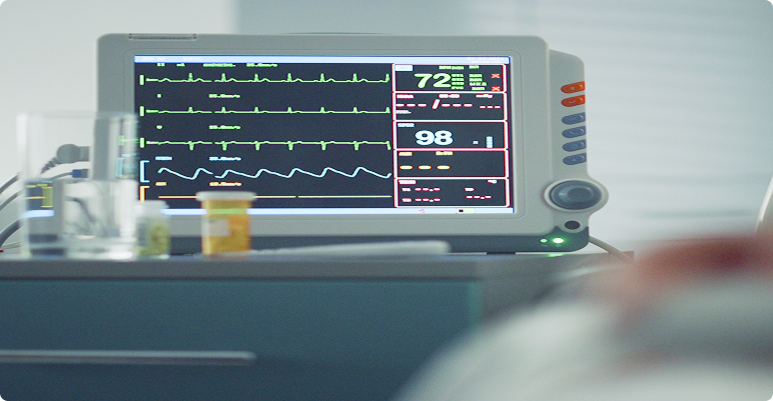ECG (Electrocardiogram) Monitoring

ECG (Electrocardiogram) Monitoring
Electrocardiogram (ECG or EKG) monitoring is a crucial aspect of patient care in various clinical settings. It involves the continuous recording of the electrical activity of the heart to detect and monitor cardiac abnormalities.
what is ECG (Electrocardiogram) Monitoring?
Electrocardiogram (ECG or EKG) monitoring is a crucial aspect of patient care in various clinical settings. It involves the continuous recording of the electrical activity of the heart to detect and monitor cardiac abnormalities. Nurses play a vital role in ECG monitoring, and their responsibilities include:
-
Placement of ECG Electrodes
-
Setting Up and Operating the ECG Monitor
-
Continuous Monitoring and Interpretation
-
Responding to Abnormal Findings
-
Patient Care and Education
-
Documentation
-
Maintenance of Equipment
-
Collaboration with the Healthcare Team
-
Emergency Response
-
Infection Control
ECG monitoring by nurses is essential in many areas, including critical care units, emergency departments, telemetry units, and post-operative care. It enables early detection of potentially life-threatening cardiac conditions, contributing to timely and effective treatment and improved patient outcomes.
Who Needs ECG (Electrocardiogram) Monitoring?
Electrocardiogram (ECG or EKG) monitoring is used for a variety of patients in different clinical settings. The decision to use ECG monitoring is typically based on the patient's medical condition and the risk of cardiac abnormalities. Common indications for ECG monitoring include:
-
Suspected Cardiac Conditions
-
Arrhythmias
-
Pre- and Post-operative Monitoring
-
Acute Medical Conditions
-
Electrolyte Imbalances
-
Drug Toxicity
-
Chronic Conditions
-
Post-resuscitation Care
-
Stroke or Neurological Events
-
Monitoring During Diagnostic Procedures
-
Extended Monitoring
The decision to initiate ECG monitoring is usually made by a physician based on the patient's overall clinical picture, symptoms, and risk factors for heart disease. Continuous ECG monitoring enables healthcare providers to detect and respond to cardiac events in real-time, significantly improving patient outcomes in many cases.
How can our nurses help?
Nurses play a pivotal role in ECG (Electrocardiogram) monitoring, providing essential care and ensuring the accurate monitoring and interpretation of cardiac rhythms. Their responsibilities in this area include:
-
Setting Up ECG Monitoring
-
Continuous Monitoring
-
Responding to Changes
-
Patient Care
-
Documentation
-
Maintenance of Equipment
-
Collaboration and Communication
-
Infection Control and Safety
-
Quality Assurance
-
Emergency Preparedness
In summary, nurses are integral to the process of ECG monitoring, providing not only technical support in managing the equipment but also playing a critical role in patient care, interpretation of data, and emergency response. Their vigilance and expertise can significantly impact patient outcomes, especially in critical care settings.

Why do feeding tube insertions at home?

Save your Time
Avoid long waits and reduce the risk of infections in the hospital

Comfort and privacy
Nursing procedures can be done in the comfort of your home with the same level of effectiveness as in the hospital

Faster response time
We are able to get a nurse to you in as quickly as 2 hours (urgent charges may apply)

Lower overall cost
No hefty ambulance and A&E fees